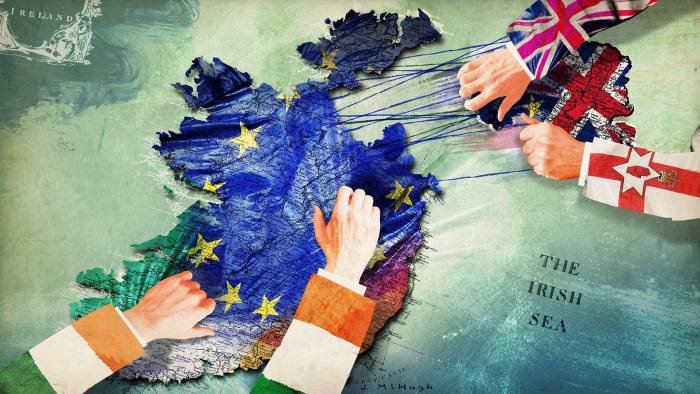When The Kingdom Divides
March 12, 2020
On January 31, 2020, the UK officially left the European Union (EU). The UK’s withdrawal from the EU is called Brexit and this has been the center of the political debates over the past 4 years. The issue has become so complicated that even some MPs of the UK are disoriented. Even though this may be confusing to many people, this is an important issue that will determine the future of not only the EU but the global economy.
- Background
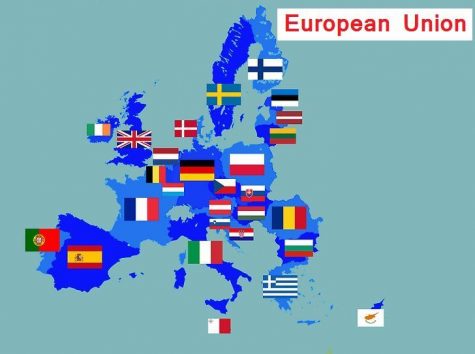
European Union (EU) is an economic and political union with 27 countries located in Europe. It was created in 1958 as the European Economic Community (EEC) with an aim to increase economic cooperation between six countries and now has reached its hands to political areas such as the environment, justice, and immigration. With some exceptions, EU citizens can cross borders without identification, trade without tariff, and use the same currency Euro. The UK has been a member of the EU since 1973 but uses its own currency Pound.
- Why leave the EU?
During the past decade, discontent with the EU rules such as immigration policies and business regulations has risen among the conservative nationalists and developed into the most divisive issue in the country: whether to stay or leave the EU. In the referendum in 2016, “Leave” votes exceeded the “Stay” with a 52% vote. According to the analysis by Lord Ashcroft, one of the most common arguments made by leave voters was the principle that a country should be able to make its own rules and “regain control over immigration and its own borders” as well as levy tariffs to protect the domestic industries. The claim by pro-Brexit goes on; According to the data in 2018, the UK pays £17.4billion to the EU each year and even with the rebate and the public sector receipts from the EU, staying in the EU is still an annual loss of £8.9billion for the UK.
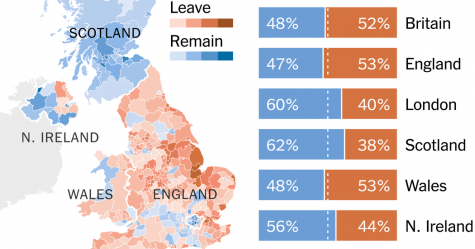
- Northern Ireland problem ”The Troubles”
The separation of Northern Ireland from the UK is perhaps the most difficult problem associated with Brexit. The history of this complexity in Northern Ireland dates back to the 17th century when the British empire colonized Ireland. During the British occupation, Ireland eventually divided into two: Nationalists, the Catholics who wanted Irish independence, and the Unionists, the Protestants who preferred to stay as a part of the UK. Based on the demographic distribution, the UK decided to keep Northern Ireland with the high concentration of Unionists as their own territory and granted independence of the rest of Ireland where the Nationalists take up the majority as the Republic of Ireland. However, the Nationalists in Northern Ireland who still believed that Northern Ireland was rightfully part of Ireland formed a paramilitary called the Irish Republican Army (IRA) in the late 1960s. The IRA fired continuous attacks on British troops at the hard border between the UK and the Republic of Ireland which for Nationalists was “the symbol of British occupation.” 30 years of this violent conflict killed over 3600 people and marked a scar in British history as “The Troubles.” In 1998, this conflict was settled in a compromise known as the Belfast Agreement or The Good Friday Agreement: keeping Northern Ireland within the UK, making the people in Northern Ireland eligible for both the Irish and UK citizenship, and allowing Northern Ireland to rejoin the Republic of Ireland based on the results of the referendum. This settlement was deemed as a success story by many including Bill Clinton who said that The Good Friday Agreement was a “work of genius” which helped to preserve the concept of democracy.
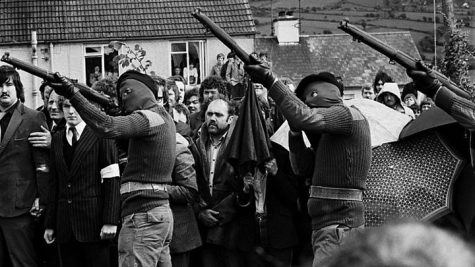
What Brexit means for Northern Ireland is that there has to be a “hard” border between the Republic of Ireland and Northern Ireland to manage the trade and get imports and exports inspected since one of the main objectives of Brexit is to enable the UK to follow their own independent trade policies. The problem with having a hard border there is that it may potentially realize the dark history that was brought to a peaceful end 20 years ago. If the hard border is reimposed again between Northern Ireland and the Republic of Ireland, those who identify as Irish will be isolated. This may stimulate the Nationalists’ sense of belonging to Ireland and reignite violence and chaos in Northern Ireland. The rise of the New Irish Republican Army (NIRA), the reincarnation of the IRA, with the victory of the Sinn Fèin party in the Irish election suggests the surging nationalism in Northern Ireland. To prevent tensions, the alternative border separation proposal keeps Northern Ireland within the EU customs union and draws the border in the North Channel, the strait between the Great Britain Island and the mainland of Ireland. This is still an unpopular plan because it may be taken as a betrayal against the Unionists who live in Northern Ireland. The controversy on how to check the customs in Northern Ireland still remains a brain twister for the MPs.
- No-deal Brexit
One whole month has passed since the UK left the EU. Although the UK is already out of the EU, people are still allowed to travel in and out of the UK and the trade between EU and UK does not require custom checks until December 31, 2020. This is the transition period designed for the UK to make deals with the EU and other trade partners about the trade agreements, rules regarding the rights of EU citizens in the UK, and the Northern Ireland problem. Right now, the negotiators are running around to settle agreements before the deadline of December 31 to prevent the “No Deal Brexit”, the worst-case scenario in which the failure of the UK to make deals associated with trade, immigration and Northern Ireland results in the chaos of the economy and the border. Now that the UK has left the EU and its customs union, reaching consensus on Free Trade Agreement (FTA) has been one of the top priorities of the UK. failure to sign and ratify the FTA on time means that the UK will have to be carried out under World Trade Organization (WTO) rules that seriously affect the industry in the UK. The effects on the agricultural industry worth £122 billion to the national economy can be seen in the example of lamb. UK lamb producers export 30% of the lamb and 90% of which goes to the EU with no tariff. If the WTO rules are applied, 48% tariff will be added to the price of the lamb produced in the UK for consumers in the EU, making it harder for lamb farmers to sell their products abroad. Boris Johnson commented that he was willing to “consider an agreement” but emphasized that the deal “must reflect the fact that the UK will be an independent coastal state”
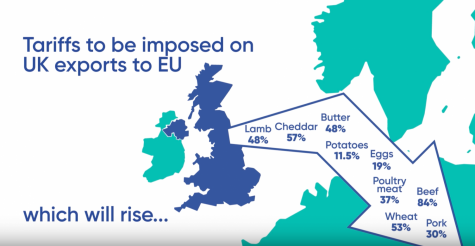
No matter what the politics of Brexit are, the whole situation seems to reflect an ongoing shift in the world… from globalization and tolerance, to isolationism and fear. We will have to wait to see how this all plays out in the decade ahead.
